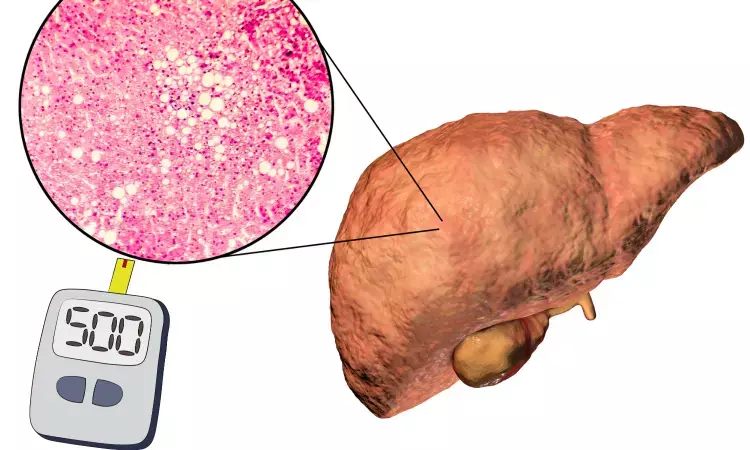- Home
- Medical news & Guidelines
- Anesthesiology
- Cardiology and CTVS
- Critical Care
- Dentistry
- Dermatology
- Diabetes and Endocrinology
- ENT
- Gastroenterology
- Medicine
- Nephrology
- Neurology
- Obstretics-Gynaecology
- Oncology
- Ophthalmology
- Orthopaedics
- Pediatrics-Neonatology
- Psychiatry
- Pulmonology
- Radiology
- Surgery
- Urology
- Laboratory Medicine
- Diet
- Nursing
- Paramedical
- Physiotherapy
- Health news
- Fact Check
- Bone Health Fact Check
- Brain Health Fact Check
- Cancer Related Fact Check
- Child Care Fact Check
- Dental and oral health fact check
- Diabetes and metabolic health fact check
- Diet and Nutrition Fact Check
- Eye and ENT Care Fact Check
- Fitness fact check
- Gut health fact check
- Heart health fact check
- Kidney health fact check
- Medical education fact check
- Men's health fact check
- Respiratory fact check
- Skin and hair care fact check
- Vaccine and Immunization fact check
- Women's health fact check
- AYUSH
- State News
- Andaman and Nicobar Islands
- Andhra Pradesh
- Arunachal Pradesh
- Assam
- Bihar
- Chandigarh
- Chattisgarh
- Dadra and Nagar Haveli
- Daman and Diu
- Delhi
- Goa
- Gujarat
- Haryana
- Himachal Pradesh
- Jammu & Kashmir
- Jharkhand
- Karnataka
- Kerala
- Ladakh
- Lakshadweep
- Madhya Pradesh
- Maharashtra
- Manipur
- Meghalaya
- Mizoram
- Nagaland
- Odisha
- Puducherry
- Punjab
- Rajasthan
- Sikkim
- Tamil Nadu
- Telangana
- Tripura
- Uttar Pradesh
- Uttrakhand
- West Bengal
- Medical Education
- Industry
SGLT2 inhibitors improve FIB-4 index better than pioglitazone in MAFLD patients

Japan: A study entitled "Effects of sodium-glucose cotransporter two inhibitors and pioglitazone on FIB-4 index in metabolic associated fatty liver disease" has concluded that among patients with metabolic dysfunction-associated fatty liver disease (MAFLD), treatment with SGLT2i essentially improves FIB-4 index over 96 weeks. Researchers compared these results with pioglitazone and confirmed the efficacy of SGLT2i is better than pioglitazone.
In patients with non-alcoholic fatty liver disease and type 2 diabetes mellitus (T2DM), the beneficial effects of sodium-glucose cotransporter two inhibitors (SGLT2i) and thiazolidinediones on liver dysfunction are already known.
Researchers from the Department of Gastroenterology and Hepatology at National Center for Global Health and Medicine Kohnodai Hospital, did a retrospective study of 568 patients and determined the efficacy of these drugs for managing liver disease in patients with a history of MAFLD and T2DM.
The study points are:
- 95 patients were treated with SGLT2i
- 86 patients were treated with pioglitazone.
- Twenty-nine patients were treated with both.
- The primary outcome measured was the change in fibrosis (FIB)-4 index between baseline and 96 weeks.
- There was a significant decrease at 96 weeks in the mean FIB-4 index in the SGLT2i group. This was not recorded in the pioglitazone group.
- In both the groups, there was a decrease in aspartate aminotransferase to platelet ratio index (APRI), serum aspartate and alanine aminotransferase (ALT), haemoglobin A1c, and fasting blood sugar significantly decreased in both groups.
- The ALT in the SGLT2i group and pioglitazone was -17 ± 3 IU/L and -14 ± 3 IU/L, respectively.
- The body weight decreased in the SGLT2i group and increased in the pioglitazone group increased.
- As per baseline ALT (>30 IU/L), the FIB-4 index significantly decreased in both groups.
- Adding SGLT2i improves liver enzymes but not the FIB-4 index for 96 weeks in patients taking pioglitazone.
Concluding further, treatment with SGLT2i improves the FIB-4 index compared to pioglitazone MAFLD patients over 96 weeks.
Further reading:
Mino, Masaaki, et al. "Effects of Sodium-Glucose Cotransporter 2 Inhibitors and Pioglitazone On FIB-4 Index in Metabolic Associated Fatty Liver Disease." Hepatology Research: the Official Journal of the Japan Society of Hepatology, 2023. https://www.unboundmedicine.com/medline/citation/36905232/full_citation
BDS, MDS in Periodontics and Implantology
Dr. Aditi Yadav is a BDS, MDS in Periodontics and Implantology. She has a clinical experience of 5 years as a laser dental surgeon. She also has a Diploma in clinical research and pharmacovigilance and is a Certified data scientist. She is currently working as a content developer in e-health services. Dr. Yadav has a keen interest in Medical Journalism and is actively involved in Medical Research writing.
Dr Kamal Kant Kohli-MBBS, DTCD- a chest specialist with more than 30 years of practice and a flair for writing clinical articles, Dr Kamal Kant Kohli joined Medical Dialogues as a Chief Editor of Medical News. Besides writing articles, as an editor, he proofreads and verifies all the medical content published on Medical Dialogues including those coming from journals, studies,medical conferences,guidelines etc. Email: drkohli@medicaldialogues.in. Contact no. 011-43720751


